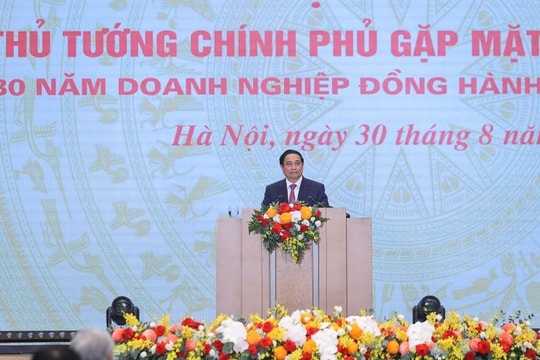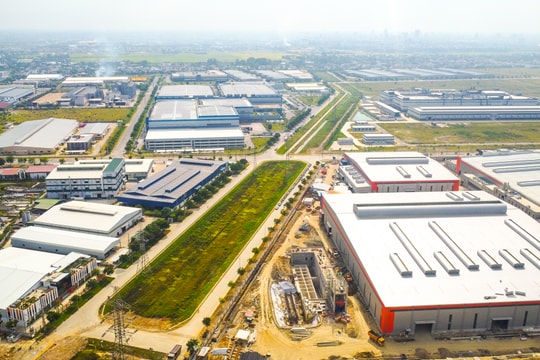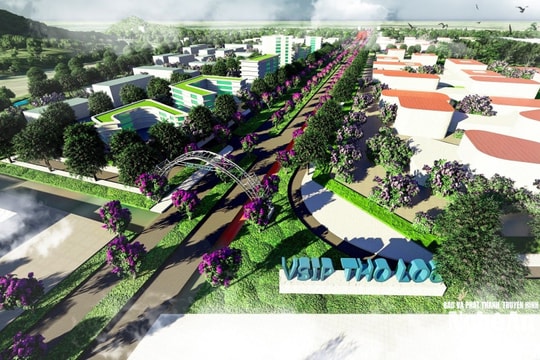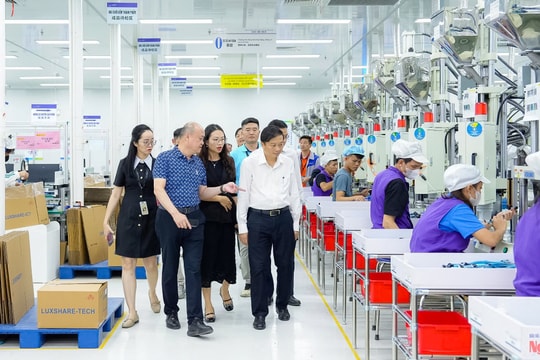FDI enterprises "rank last" in budget payment
With many incentives, FDI enterprises pay corporate income tax for 30 years at only about 10%, half of the amount paid by the domestic sector annually.
According to the General Statistics Office, in 2016, foreign-invested enterprises (FDI) generated more than VND327,400 billion in profits, an average increase of 17.3% over the 2010-2016 period. However, this enterprise sector only contributed VND250,900 billion to the State budget in 2016. Meanwhile, non-State enterprises generated VND197,400 billion in profits (VND188,100 billion in 2016 alone), but on average over the past 5 years, they contributed VND434,700 billion to the budget.
"The FDI sector is the one that generates the most profit for the economy, more than the other sectors including state-owned and private enterprises, but contributes less to the budget," he said.Pham Dinh Thuy - Director of Statistics Department commented.
Explaining this difference, Mr. Thuy said,The main reason is that foreign enterprises receive tax incentives and special treatment. Most foreign enterprises when investing in Vietnam register their production and business lines in the industrial and high-tech sectors, and enjoy a series of tax incentives and corporate income tax exemptions for a number of years from the first year of revenue recognition.
|
Enjoying many incentives from investment attraction policies, FDI enterprises are contributing less to the budget than domestic enterprises.Photo: AP |
Citing the case of Samsung Thai Nguyen and Samsung Bac Ninh, Mr. Thuy said that the average corporate income tax these units pay in the first 30 years of operation is only about 10%, of which the first 4 years are completely tax-exempt, the next 9 years only have to pay 50%... not to mention that provinces and cities also have other incentives.
"On average, domestic enterprises have to pay 20-30% corporate income tax depending on the sector, while foreign enterprises enjoy many incentives to pay corporate tax for 30 years."It is only half of the annual domestic sector contribution," he said.
Mr. Thuy further analyzed that FDI enterprises operating in high technology are exempted from import tax on components and spare parts. Some localities also have policies to exempt and reduce taxes with flexible time. Previously, the Ministry of Planning and Investment managed the licensing of FDI projects, but now it has been decentralized to localities, so provinces and cities have different preferential policies to attract FDI capital.There are FDI projects in this province that are not supported for investment, but when transferred to another province, they receive better incentives.
In addition, he admitted that recently, a number of foreign enterprises have transferred prices, evaded VAT, and under-declared profits to evade corporate tax. The Government is currently assigning the Ministry of Finance to develop a decree against transfer pricing of this sector of enterprises to create a level playing field for domestic enterprises.
"In the coming time, we need to control more strictly, not allowing provinces and cities to exceed the FDI incentive framework, creating a healthy business environment for domestic enterprises," he said.
Also according to the General Statistics Office, tAs of December 31, 2016, the total capital used for production and business of the enterprise sector reached 30.2 million billion VND.. But the revenue generated by enterprises compared to the capital invested in business is only about 40%. In 2016, the net revenue of the enterprise sector reached 17.4 million billion VND, of which the FDI sector contributed 4.8 million billion, state-owned enterprises nearly 2.9 million billion, the rest is the private sector.





.jpg)
.jpg)


